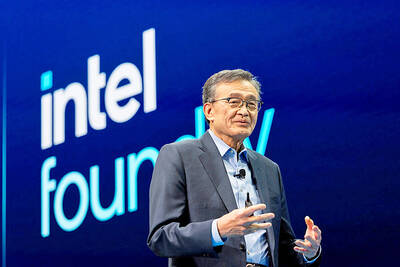AUTO PARTS
Tong Yang profit falls 37%
Citing a weak global automotive market, Tong Yang Industry Co (東陽實業) yesterday reported that first-quarter pretax income declined 37 percent annually to NT$383 million (US$12.75 million), its lowest level in 19 quarters. Earnings per share were NT$0.73, it said. The company supplies bumpers, grilles and fenders to global brands through the aftermarket channel or as an original equipment manufacturer. Tong Yang said it would continue developing water-based coating and electroplating products to enhance added value, while investing in lightweight auto products.
RETAIL
Pinkoi sales decline 30%
Taipei-based e-commerce start-up Pinkoi.com (果翼科技) yesterday said that online sales fell 30 percent last month compared with February due to the COVID-19 pandemic. The company, which specializes in original design goods and holds fairs, said that offline sales also fell by more than 50 percent sequentially last quarter. It did not disclose exact sales figures. With more than 16,000 individual brands on its Web site, Pinkoi said it would lower its commissions for orders under US$10, while investing more than US$660,000 in advertising this quarter. The company is launching various workshops and classes as it seeks to boost offline sales for designers.
ELECTRONICS
Silitech reports losses
Handset keypad supplier Silitech Technology Corp (閎暉) yesterday posted net losses of NT$373 million for last month, including NT$363 million in impairment losses and layoff expenses from its Shenzhen-based Xurong plant. Losses per share were NT$6.22, the company said in a regulatory filing. Silitech released the results at the request of the regulator due to an unusual spike in its share price. Its shares closed unchanged at NT$26.7 in Taipei trading yesteday. They have surged 33.83 percent in the past seven sessions, compared with the TAIEX’s 3.06 percent rise over the same period.
MANUFACTURING
Yageo to list GDRs
Yageo Corp is to list global depositary receipts (GDRs) in Luxembourg next week to raise funds to boost its production capacity and repay debts, it said yesterday. Yageo, which makes chip resistors, inductors and multilayer ceramic capacitors, said in a statement that it would issue 12.68 million GDRs on Monday next week, each of which represents five Yageo common shares. The GDRs have been priced at US$51.25 per unit, translating to NT$308.1 per common share, an 8.84 percent discount on Yageo’s closing price of NT$338 on Tuesday. Based on the pricing, Yageo is expected to raise about US$650 million, it said.
BANKING
Banks mull requiring masks
Financial Supervisory Commission Chairman Wellington Koo (顧立雄) yesterday said that the Bankers Association of the Republic of China (銀行公會) had proposed requiring visitors to bank branches to wear masks to prevent the spread of COVID-19. The plan requires approval from the Central Epidemic Command Center, Koo said at a meeting of the Legislative Yuan’s Finance Committee. Most banks take people’s temperature at bank entrances. Koo said the commission would suggest the plan to the center tomorrow and start implementing it at more than 3,000 bank branches next week at the earliest.

Mercuries Life Insurance Co (三商美邦人壽) shares surged to a seven-month high this week after local media reported that E.Sun Financial Holding Co (玉山金控) had outbid CTBC Financial Holding Co (中信金控) in the financially strained insurer’s ongoing sale process. Shares of the mid-sized life insurer climbed 5.8 percent this week to NT$6.72, extending a nearly 18 percent rally over the past month, as investors bet on the likelihood of an impending takeover. The final round of bidding closed on Thursday, marking a critical step in the 32-year-old insurer’s search for a buyer after years of struggling to meet capital adequacy requirements. Local media reports

US sports leagues rushed to get in on the multi-billion US dollar bonanza of legalized betting, but the arrest of an National Basketball Association (NBA) coach and player in two sprawling US federal investigations show the potential cost of partnering with the gambling industry. Portland Trail Blazers coach Chauncey Billups, a former Detroit Pistons star and an NBA Hall of Famer, was arrested for his alleged role in rigged illegal poker games that prosecutors say were tied to Mafia crime families. Miami Heat guard Terry Rozier was charged with manipulating his play for the benefit of bettors and former NBA player and

TECHNOLOGICAL RIVALRY: The artificial intelligence chip competition among multiple players would likely intensify over the next two years, a Quanta official said Quanta Computer Inc (廣達), which makes servers and laptops on a contract basis, yesterday said its shipments of artificial intelligence (AI) servers powered by Nvidia Corp’s GB300 chips have increased steadily since last month, should surpass those of the GB200 models this quarter. The production of GB300 servers has gone much more smoothly than that of the GB200, with shipments projected to increase sharply next month, Quanta executive vice president Mike Yang (楊麒令) said on the sidelines of a technology forum in Taipei. While orders for GB200 servers gradually decrease, the production transition between the two server models has been

BETTER THAN EXPECTED: The firm’s Q3 results exceeded its projections, based on ‘the underlying strength of our core markets,’ chief financial officer Dave Zinsner said Intel Corp returned to profitability and gave an upbeat revenue forecast after PC demand grew, suggesting that it is making progress on a long and challenging comeback attempt. In the third quarter, revenue rose 3 percent to US$13.7 billion. The Santa Clara, California-based company posted its first quarterly net income since the end of 2023, with earnings per share of US$0.23, excluding some items. Analysts had estimated sales of US$13.2 billion and earnings per share of US$0.01 on average, according to data compiled by Bloomberg. Fourth-quarter sales would be roughly US$13.3 billion, the company said in a statement on Thursday. Intel shares gained about